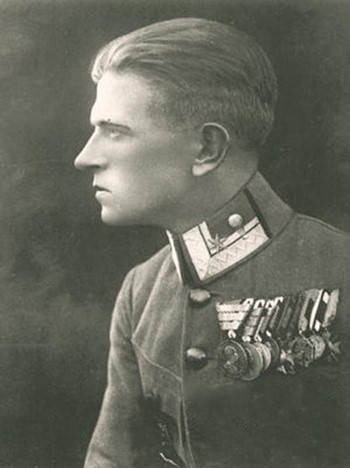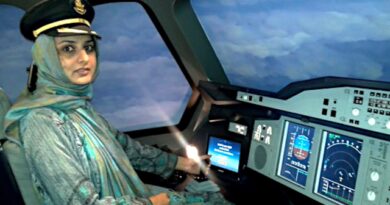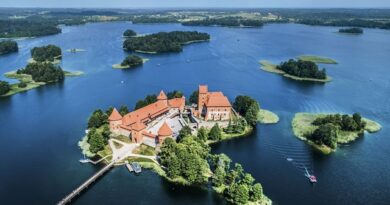Julius Arigi, A WWI Pilot From Austria-Hungary
In this article we will discuss the life and achievements of a proficient aviator from Austro-Hungarian Empire, Julius Arigi. Intelligent and brave, he was not only a skilled pilot but was also an innovator, instructor and businessman. Due to his allegiances, history may not treat him so kindly, but his brilliance as an aviator was undeniable.
Early Life Of Julius Arigi
Julius Arigi was born on the 3rd of October 1895 in Tetschen, Bohemia which was within the borders of Austro-Hungarian Empire at the time. He was of Sudeten German ancestry, who are also known as German Bohemians.
Not much is known about the life of Arigi before joining the military. But according to different sources he either worked or trained as a waiter or electrical mechanic. Arigi then decided to join the military and enlisted on the Austro-Hungarian Army in October 1913. His entry into the army was only about a year before the World War I. For a time, he served in an artillery regiment before being transferred to air service.
His Service As An Aviator
When Arigi transferred to air service his training as a pilot began. After his training, he successfully completed his tests on the 26th of November 1914, becoming a sargeant. In the beginning of WWI in 1914 he was sent to fight against Serbian and Montenegrin pilots. During the earlier period of his service he went through an accident as well as getting captured by the enemy. But he attempted to run away several times and finally succeeded on his 6th try, coming back to his unit.

Arigi is mostly known for his number of victories against the enemy as an aviator. The first five of these victories was on the 22nd of August 1916 against Italian Farman pilots. His final victory was on the 23rd of August 1918 over the southwest of Punta d’Ostro in Montenegro. During his four years as a pilot serving in the WWI, Arigi had a total of 32 victories.
However, his brilliance didn’t just end at there. When he was piloting a Hansa-Brandenburg D.I in 1917, Arigi redesigned the horn-balanced rudder in order to give the aircraft more stability. His design was much better than the original and later became the standard on this model.
When the World War I has finally ended, Arigi started getting into civil aviation. He founded two successful aviation companies: “Ikarus” and “World Spa Air Transport”.
Then at some point he became involved in “National Socialism” and joined the German National Socialist Workers’ Party of Czechoslovakia in 1928. In 1938, just one year before the start of WW2, he started training Luftwaffe fighter pilots. Later, some of his students, such as Walter Nowotny and Hans-Joachim Marseille, became very well-known due to their prowess in battle.
In his involvement with National Socialism, he also did espionage work for the Third Reich. On the 1st of August 1981, Julius Arigi died in Austria at the age of 85.
Resources
Anon. (n.d.), Julius Arigi, Wikipedia, Retrieved 14 September 2021
< https://en.wikipedia.org/wiki/Julius_Arigi >
Michael Duffy (22 August 2009), Who’s Who – Julius Arigi, firstworldwar.com, Retrieved 14 September 2021
< https://www.firstworldwar.com/bio/arigi.htm >
Anon. (n.d.), Julius Arigi, The Aerodrome, Retrieved 14 September 2021


